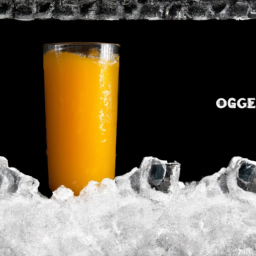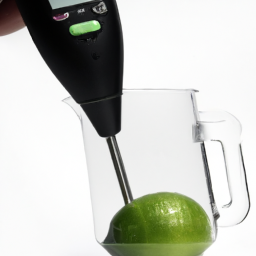As a new mom, I faced the struggle of dealing with my baby’s constipation. It was a frustrating situation, and seeing my little one in pain made me feel helpless. I tried different remedies, but nothing worked until I discovered the amazing advantages of prune juice.
Prune juice is a natural laxative that has been used for centuries to treat constipation. It is made from dried plums and has a high concentration of fiber and sorbitol, which helps soften stools and promote bowel movements.
But how long does it take for prune juice to work in babies? In this article, we will explore the benefits of prune juice, its safety for babies, when to give it, and most importantly, how long it takes to work. We will also discuss alternative remedies, tips for preventing constipation, and how to prepare prune juice for babies.
So, if you are a worried parent dealing with constipation, keep reading to find out everything you need to know about prune juice for babies.
Key Takeaways
- Prune juice takes effect within 8-12 hours after consumption in babies.
- American Academy of Pediatrics recommends starting with 1-2 ounces per day and adjusting as needed.
- Prune juice should be diluted with water and offered in a cup to prevent tooth decay.
- Prune juice can cause diarrhea and stomach cramps if consumed in large amounts, so it is important to consult with a pediatrician before giving it to a baby.
Understanding Baby Constipation
If your baby is struggling to poop, understanding the ins and outs of baby constipation can help you visualize what’s going on in their tiny body.
Babies who are exclusively breastfed can go up to 10 days without having a bowel movement, which is normal. However, if your baby is formula-fed, they should have a bowel movement at least once a day or once every other day. If they’re not pooping as frequently as they should, it may be a sign of constipation.
There are several causes of infant constipation, including a lack of water intake, a change in diet, or the introduction of solid foods. Additionally, certain medications or underlying medical conditions can cause constipation in babies.
If your baby is showing signs of constipation, such as hard stools, straining, or discomfort, it’s important to address the issue before it becomes a bigger problem. That’s where prune juice comes in.
What is Prune Juice?
I want to talk about prune juice and its benefits as a natural laxative for babies.
Prune juice is rich in fiber, sorbitol, and phenolic compounds that help to soften stool and promote bowel movements. It works by drawing water into the intestines, which helps to bulk up the stool and make it easier to pass.
As a healthcare assistant, I often recommend prune juice as a safe and effective remedy for infant constipation.
Nutritional Value of Prune Juice
Prune juice, with its high fiber and nutrient content, can provide a number of health benefits for babies. Here are some of the nutritional values of prune juice that make it a great addition to your baby’s diet:
- Fiber – Prune juice is high in fiber, which can help regulate bowel movements and prevent constipation.
- Vitamins and minerals – Prune juice is a good source of vitamins A, C, and K, as well as potassium and iron.
- Antioxidants – Prune juice contains antioxidants that can help protect against cell damage and promote overall health.
- Low sugar content – Despite its sweet taste, prune juice has a low sugar content compared to other fruit juices.
To ensure your baby is getting the most out of prune juice, you can try making your own recipe at home. Simply blend prunes with water until it reaches a smooth consistency, and serve it to your little one.
Now that we’ve covered the nutritional value of prune juice, let’s move on to how it works as a laxative for babies.
How Prune Juice Works as a Laxative
When introducing your little one to prune juice, it’s important to understand how this natural remedy can help with their bowel movements. Prune juice is an effective laxative due to its high sorbitol content. Sorbitol is a sugar alcohol that is not easily absorbed by the body, and when consumed in large amounts, it draws water into the bowel, making stools softer and easier to pass.
To better understand the effectiveness of prune juice as a laxative, let’s take a look at this table:
| Age | Amount of Prune Juice | Frequency |
|---|---|---|
| 0-4 months | Not recommended | N/A |
| 4-8 months | 1 to 2 ounces | Once a day |
| 8-12 months | 2 to 4 ounces | Once or twice a day |
| 12-24 months | 4 to 6 ounces | Once or twice a day |
It’s important to note that while prune juice can be helpful in relieving constipation in babies, consuming too much can lead to potential side effects such as diarrhea and stomach cramps. It’s also not recommended for infants under 4 months old as their digestive systems are not yet fully developed. In the next section, we will discuss the safety of prune juice for babies.
Is Prune Juice Safe for Babies?
You may be wondering if giving your baby prune juice is safe for treating constipation. While prune juice does have benefits, it’s important to be aware of the potential risks for babies. Here are some things to keep in mind before giving your baby prune juice:
- Prune juice can cause diarrhea in babies, which can lead to dehydration if not managed properly.
- The high sugar content in prune juice can lead to tooth decay and other dental problems.
- Prune juice can interfere with medications, so it’s important to consult with your pediatrician before giving your baby prune juice if they’re taking any medications.
As with any treatment option, it’s important to weigh the potential benefits against the potential risks. It’s recommended to first try natural remedies such as increasing fiber in your baby’s diet, offering more fluids, or gentle tummy massage. If constipation persists, consult with your pediatrician to determine the best course of action.
When it comes to giving prune juice to babies, it’s important to do so under the guidance of a healthcare professional.
In the next section, we’ll discuss when it’s safe to give prune juice to babies.
When to Give Prune Juice to Babies
If you’ve heard that prune juice can help alleviate constipation in babies, it’s important to know when it’s appropriate to give it to them. Timing consideration is crucial when it comes to offering prune juice to infants.
It’s recommended to wait until your baby is at least six months old before introducing any kind of juice, including prune juice. Before that, breast milk or formula should be the sole source of nutrition for your baby.
When you do decide to offer prune juice, it’s important to take some precautions to ensure your baby’s safety. First, dilute the juice with an equal amount of water to prevent dehydration. Start with a small amount, such as one ounce, and gradually increase the amount as needed. Also, make sure to offer prune juice in a cup instead of a bottle to prevent tooth decay.
With proper timing and precautions, prune juice can be a helpful remedy for constipation in babies.
So, how long does it take for prune juice to work? Stay tuned for the next section to find out.
How Long Does It Take for Prune Juice to Work?
Now that we know when to give prune juice to babies, the next question is how long it takes for prune juice to work. From my personal experience, prune juice usually takes effect within 8-12 hours after consumption. However, this may vary depending on the baby’s age, diet, and overall health condition.
To give you a better idea of what to expect, here are some possible outcomes after giving prune juice to your baby:
- Relief from constipation: Seeing your baby pass a bowel movement after days of struggling can be a huge relief for both you and your little one.
- Improved appetite: Constipation can cause discomfort and loss of appetite, so providing relief through prune juice may help stimulate your baby’s hunger.
- Increased thirst: Prune juice has a diuretic effect, which means it can increase your baby’s urine output. Make sure to offer more breast milk or formula to prevent dehydration.
- Upset stomach: Prune juice contains sorbitol, a natural laxative that can cause gas, bloating, and diarrhea if consumed in large amounts.
- Allergic reaction: Although rare, some babies may be allergic to prunes or other ingredients in the juice. Watch out for signs of rash, hives, or difficulty breathing.
When it comes to dosage, the American Academy of Pediatrics recommends starting with 1-2 ounces of prune juice per day and adjusting as needed. It’s best to consult your pediatrician before giving prune juice or any other infant laxatives to your baby.
Also, keep in mind that prune juice is not the only option for treating constipation in babies. In the next section, we’ll explore some alternatives to prune juice that you may consider.
Alternatives to Prune Juice
Personally, I’ve found that there are other natural remedies for constipation aside from prune juice.
For example, increasing fiber intake through fruits, vegetables, and whole grains, drinking plenty of water, and getting regular exercise can all help promote regular bowel movements.
Additionally, medical treatments such as laxatives and stool softeners may be necessary in some cases and should be discussed with a healthcare provider.
Other Natural Remedies for Constipation
To alleviate constipation in your baby, consider trying other natural remedies such as massaging their belly or giving them small amounts of prune juice. Herbal teas, like chamomile or fennel, can also help relieve constipation. However, it’s important to note that infants under six months old shouldn’t be given anything other than breast milk or formula.
In addition to herbal teas and massage techniques, introducing certain foods to your baby’s diet can also help alleviate constipation. Foods high in fiber, such as prunes, pears, and oatmeal, can help soften stools and make bowel movements easier. On the other hand, it’s important to avoid foods that can cause constipation, such as bananas and rice.
By incorporating these natural remedies and avoiding constipation-causing foods, you can help your baby have regular bowel movements.
As a next step, if these natural remedies don’t provide relief for your baby’s constipation, it may be time to consider medical treatments.
Medical Treatments for Constipation
One option for addressing persistent constipation in infants is seeking medical treatments, which can provide effective relief and prevent potential complications.
One common medical treatment for infant constipation is a stool softener or laxative prescribed by a pediatrician. These medications work by drawing water into the stool, making it softer and easier to pass. It’s important to follow the dosage instructions provided by the pediatrician, as overuse of these medications can lead to diarrhea and dehydration.
In addition to medication, a pediatrician may also recommend other interventions such as a change in formula, increasing fiber intake through the introduction of fiber-rich foods, and providing hydration tips such as offering water between feedings.
In some cases, a pediatrician may also recommend a rectal stimulation technique to help stimulate bowel movements. It’s important to consult with a pediatrician before trying any medical treatments for infant constipation.
As we’ve discussed medical treatments for infant constipation, it’s important to note that there are also steps parents can take to prevent constipation in their babies.
Tips for Preventing Baby Constipation
You can easily prevent constipation in your baby by incorporating more fiber-rich foods into their diet, such as pureed prunes or mashed avocado. Here are three simple tips to help keep your little one regular:
- Offer water or other liquids throughout the day to keep your baby hydrated.
- Give your baby a gentle massage or do some leg exercises to help stimulate bowel movements.
- Make sure your baby is getting enough physical activity, even if it’s just tummy time or crawling.
By following these tips, you can help prevent constipation in your baby and ensure they stay healthy and happy.
As you continue to explore natural remedies for constipation, consider incorporating prune juice into your baby’s diet.
How to Prepare Prune Juice for Babies
If your little one is struggling with constipation, prune juice might be a helpful addition to their diet. Did you know that just 1/2 cup of prune juice contains about 6 grams of fiber? That’s almost a quarter of the daily recommended intake for babies!
However, it’s important to introduce prune juice slowly and in small amounts to avoid overwhelming your baby’s digestive system. One way to prepare prune juice for babies is to mix equal parts of prune juice and water.
It’s also important to note that babies under six months old shouldn’t be given prune juice as they’re not yet ready for solids. Instead, you can try incorporating pureed prunes into their diet once they’ve started on solids.
Transitioning into the subsequent section about monitoring your baby’s bowel movements, it’s important to keep track of how often your baby has bowel movements and the consistency of their stool. This’ll give you an idea of how well their digestive system is functioning and if any adjustments need to be made to their diet.
Monitoring Your Baby’s Bowel Movements
Keeping track of your baby’s bowel movements is crucial for monitoring their digestive health and identifying any potential problems early on. As a parent, it’s important to be aware of the frequency, consistency, and color of your baby’s stools. Changes in these factors may indicate that your baby is constipated or experiencing diarrhea, which can be uncomfortable and distressing for them.
If you notice that your baby is constipated or having difficulty passing stools, you may need to adjust their feeding habits. One way to prevent constipation is to ensure that your baby is getting enough fluids. Breastfeeding or formula feeding on demand can help ensure that your baby is hydrated and able to pass stools more easily.
Additionally, you may want to consider introducing foods that are high in fiber, such as pureed prunes or other fruits and vegetables. By monitoring your baby’s bowel movements and making adjustments to their feeding habits, you can help prevent constipation and promote healthy digestion.
Frequently Asked Questions
Can prune juice cause any negative side effects in babies?
Oh my, giving babies prune juice can be risky! It may cause digestive discomfort, diarrhea, and dehydration. Instead, consider prune juice alternatives or speak with a pediatrician before giving it to infants.
How often should I give prune juice to my baby to prevent constipation?
For my baby’s constipation, I’ll give prune juice every other day. If not effective, I’ll consult a pediatrician. Fruit alternatives like pears and peaches can also help.
Can I mix prune juice with other liquids for my baby to drink?
As a parent, I’ve found that mixing prune juice with other liquids can be a great way to accommodate my baby’s taste preferences. Experiment with different options, but be sure to keep an eye on any potential reactions.
Is it safe to give prune juice to a newborn baby?
As a medical professional, I advise against giving prune juice to a newborn baby. Introducing prune juice to infants should be done cautiously, with a doctor’s recommendation, and only after they have started solid foods. Safety is paramount.
How can I tell if my baby’s constipation is severe enough to require medical attention?
If my baby is experiencing severe constipation, I would consult with their pediatrician. Common remedies include increased water intake and dietary changes. Medical attention may be warranted if symptoms persist or there is blood in the stool.
Conclusion
So there you have it, prune juice can be a safe, effective, and natural remedy for baby constipation. It’s important to remember that every baby is different and may react differently to prune juice. As a parent, it’s important to monitor your baby’s bowel movements and consult with a pediatrician if constipation persists.
Did you know that approximately 25% of infants experience constipation at some point during their first year of life? That’s a quarter of all babies! It’s important to take steps to prevent constipation and address it promptly if it does occur. Incorporating prune juice, along with other remedies and preventative measures, can help keep your baby happy and healthy.
Remember to always consult with a pediatrician before making any changes to your baby’s diet or health routine.








